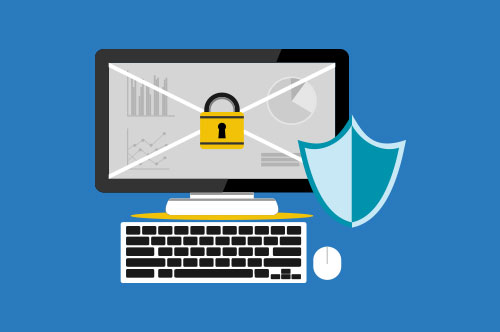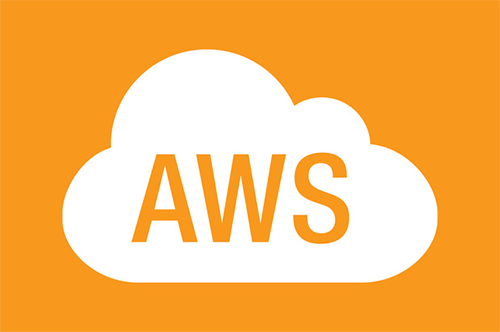CISSP Certification Training
- Highest Passing rate
- Globally recognized trainer & consultants
- Access to latest question bank
- Exclusive courseware
- 6 Month cccess to recorded session
- Exclusive Session on how to pass CISSP in 1st attempt
- 45 PDU/CPE Certificate
- Career Mentoring
UPCOMING BATCHE(S) IN "PUNE" (change city)
| Date | Time | Course Type | Price | Option |
|---|
Certified Information Systems Security Professional
(CISSP) Training in Pune | Cybersecurity Leadership Certification
Become a globally recognized cybersecurity leader with our CISSP
Certification Training by IEVISION IT SERVICES. This advanced information
security course prepares professionals for senior roles like Security
Architect, Security Consultant, Cybersecurity Manager, and CISO.
Our instructor-led CISSP program aligns with the latest (ISC)² Common Body of Knowledge (CBK) and focuses on practical security implementation, governance, risk management, and enterprise protection strategies.
Domain 1 — Security and Risk Management
Core of cybersecurity governance & leadership
Topics Covered:
- CIA
Triad (Confidentiality, Integrity, Availability)
- Governance,
compliance & regulatory requirements
- Information
security policies & standards
- Risk
management frameworks (ISO 27001, NIST, COBIT)
- Business
continuity & disaster recovery planning
- Security
awareness program
- Professional
ethics & legal considerations
- Third-party and vendor risk management
Domain 2 — Asset Security
Protecting organizational data and information assets
Topics Covered:
- Data
classification & ownership
- Data
handling and retention policies
- Privacy
protection & PII security
- Secure
data lifecycle management
- Data
loss prevention (DLP)
- Media
handling and destruction
- Cloud data protection strategies
Domain 3 — Security Architecture and Engineering
Design secure enterprise systems and infrastructure
Topics Covered:
- Security
models (Bell-LaPadula, Biba, Clark-Wilson)
- Secure
hardware & trusted computing
- Cryptography
& PKI
- Secure
network architecture
- Cloud
security architecture
- Zero
Trust architecture
- Physical
security controls
- Vulnerability assessment & mitigation
Domain 4 — Communication and Network Security
Secure enterprise networks and communications
Topics Covered:
- OSI
& TCP/IP protocols
- Secure
network design
- Firewalls,
IDS, IPS, VPNs
- Network
attacks & mitigation
- Wireless
security
- Secure
communication channels
- Network
segmentation & micro-segmentation
Domain 5 — Identity and Access Management (IAM)
Control who can access systems and data
Topics Covered:
- Authentication
& authorization methods
- Access
control models (RBAC, ABAC, MAC, DAC)
- Multi-factor
authentication (MFA)
- Privileged
access management (PAM)
- Single
Sign-On (SSO)
- Federation & identity governance
Domain 6 — Security Assessment and Testing
Evaluate and validate security effectiveness
Topics Covered:
- Security
testing strategies
- Vulnerability
assessment & penetration testing
- Audit
& compliance validation
- Security
control verification
- Log
reviews and monitoring
- Red team vs blue team exercises
Domain 7 — Security Operations
Operate and monitor cybersecurity defenses
Topics Covered:
- Security
operations center (SOC)
- Incident
response & forensics
- Threat
intelligence & SIEM
- Disaster
recovery execution
- Malware
analysis basics
- Patch
& configuration management
- Monitoring & logging
Domain 8 — Software Development Security
Secure applications and DevSecOps
Topics Covered:
- Secure
SDLC
- OWASP
Top 10 vulnerabilities
- Code
review practices
- Application
security testing (SAST, DAST)
- DevSecOps
integration
- API
and web security
The CCSP
Certification Training is a comprehensive, industry-aligned program
designed to help cybersecurity and cloud professionals master advanced cloud
security architecture, governance, risk, compliance, and data protection
strategies.
As
organizations rapidly migrate to cloud environments such as AWS, Microsoft
Azure, and Google Cloud, the demand for skilled cloud security professionals
has surged globally. This course prepares candidates for the globally
recognized ISC2 CCSP (Certified Cloud Security Professional)
certification exam and equips them with real-world skills to secure cloud
infrastructure in modern enterprise environments.
Our CCSP
training is aligned with the latest (ISC2) Common Body of Knowledge (CBK) and
focuses on practical implementation, risk mitigation strategies, cloud
compliance frameworks, and architecture design. Whether you are working in
cloud migration, DevSecOps, governance, or enterprise security, this course
ensures you are job-ready and certification-ready.
- Industry Recognition: Demonstrates a working knowledge of information security
- Difficulty Level: Confirms passing a rigorous examination
- Dedication: Confirms commitment to profession
- Career differentiator, with enhanced credibility and marketability
- Get exclusive benefits: As an (ISC)² member, including valuable resources such as peer networking and idea exchange
- Earning Potential: According to the Global Information Security Workforce Study CISSPs earn a worldwide average of 25% more than their non-certified counterparts.
- Universally Recognized: Fulfills government and organization requirements for information security certification mandates
- Length of exam 3 hours
- Number of questions 100 – 150
- Question format Multiple choice and advanced innovative questions
- Passing grade 700 out of 1000 points
- Exam language availability English
- Testing center (ISC)2 Authorized PPC and PVTC Select Pearson VUE Testing Centers
Exam Language
- Brazilian
- Portuguese
- Chinese (Mandarin)
- Czech
- Danish
- Dutch
- English
- French
- German
- Italian
- Norwegian
- Polish
- Spanish
- Swedish
- Romanian
- japanese
- Korean
IEVISION - CISSP training course is intended for professionals who have at least 5 years of recent full-time professional work experience in 2 or more of the 8 domains of the CISSP CBK and are pursuing CISSP training and certification to acquire the credibility and mobility to advance within their current information security careers. The training seminar is ideal for those working in positions such as, but not limited to:
- Security Consultant
- Security Manager
- IT Director/Manager
- Security Auditor
- Security Architect
- Security Analyst
- Network Security Professional
- Application Security Professional
- Security Systems Engineer
- Chief Information Security Officer
- Director of Security
- 9/10 Passing Rate (highest in industry)
- 65% Lower fees as compare to industry rates
- International CISSP Trainer and Consultant
- Trained over 2000+ CISSP candidates
- Hard & soft copy CISSP latest courseware
- Customized pre-courseware
- 3000+ latest CISSP question bank
- Personalized follow-up for 180 days
- Professionals trained from Banking, Financials, Telecom, IT, Government, Educational institute, And Healthcare-IT etc… in India and International
- 5 Days classroom training program with 9 mock tests
- Exclusive CISSP participation certificate
- 45 PDU/CPE certificate (PMP, CISA, CISM Certified Professionals)
- An exclusive session on “How to pass CISSP in 1st attemptâ€
- A great networking opportunity
- Excellent Training Facility with delicious refreshments
- Dedicated & well trained support staff
- Professional Service Approach
FREQUENTLY ASKED QUESTIONS
You need Computer with good Internet connection to attend the virtual classroom program.
No, Exam fees not included in the training price. CISSP certification exam fees is 699$, charged by ISC2.
You need Computer with good Internet connection to attend the virtual classroom program.
Yes. You can 100% Cancel the booking. Please follow the cancellation policy
Yes. This is a ISC2 Accredited Training and Certification Program.
The CISSP credential is valid for three years; most holders renew by submitting Continuing Professional Education (CPE) credits.
- CISSP is an online Exam with 250 MCQ type questions and you have 6 hours to finish the exam.
- To pass your CISSP Exam, you need to score 700 on the scale of 1000.
- Classroom
- Virtual Classroom
This training course is intended for professionals who have at least 5 years of recent full-time professional work experience in 2 or more of the 8 domains of the CISSP CBK and are pursuing CISSP training and certification to acquire the credibility and mobility to advance within their current information security careers.
- Length of exam: 6 hours
- Number of questions: 250
- Question format: Multiple choice and advanced innovative questions
- Passing grade: 700 out of 1000 points
- Exam availability: English, French, German, Brazilian Portuguese, Spanish, Japanese, Simplified Chines, Korean, Visually impaired
Passing rate for CISSP certification is 9/10
Candidates must have a minimum of 5 years cumulative paid full-time work experience in two or more of the 8 domains of the (ISC)² CISSP CBK®. Candidates may receive a one year experience waiver with a 4-year college degree, or regional equivalent or additional credential from the (ISC)² approved list, thus requiring four years of direct full-time professional security work experience in 2 or more of the 8 domains of the CISSP CBK.
- Trainers are 15 + year experienced professionals with significant exposure on IT Security implementation and auditing.
- Trainers possess various Information Security certifications like CISA, CISSP, CISM, CGEIT, COBIT, ISO 27001 LA, ISO 27001 LI.
- 3-5 Member 5%
- 6-8 Member 10%
- 9+ Member 15%
11000 +









hrnisha Jadhav HR at Barclays
Nilesh Shahane at
Vikas Bhatia IT Security Analyst at Deutsche Bank
Umesh Bhosale Information Technology and Services Professional at STCI Finace Ltd
Shrinivas Chinni Netwrok Security Consultant at HCL